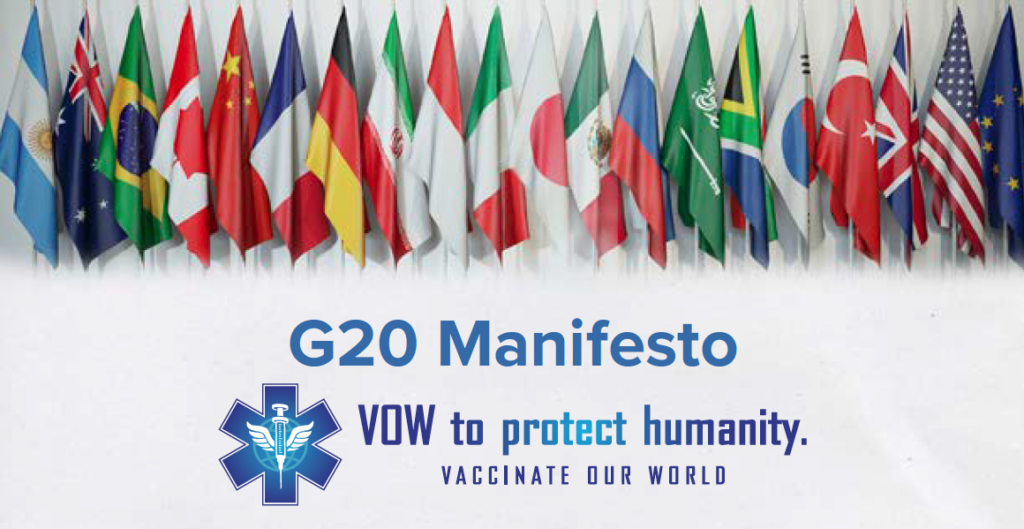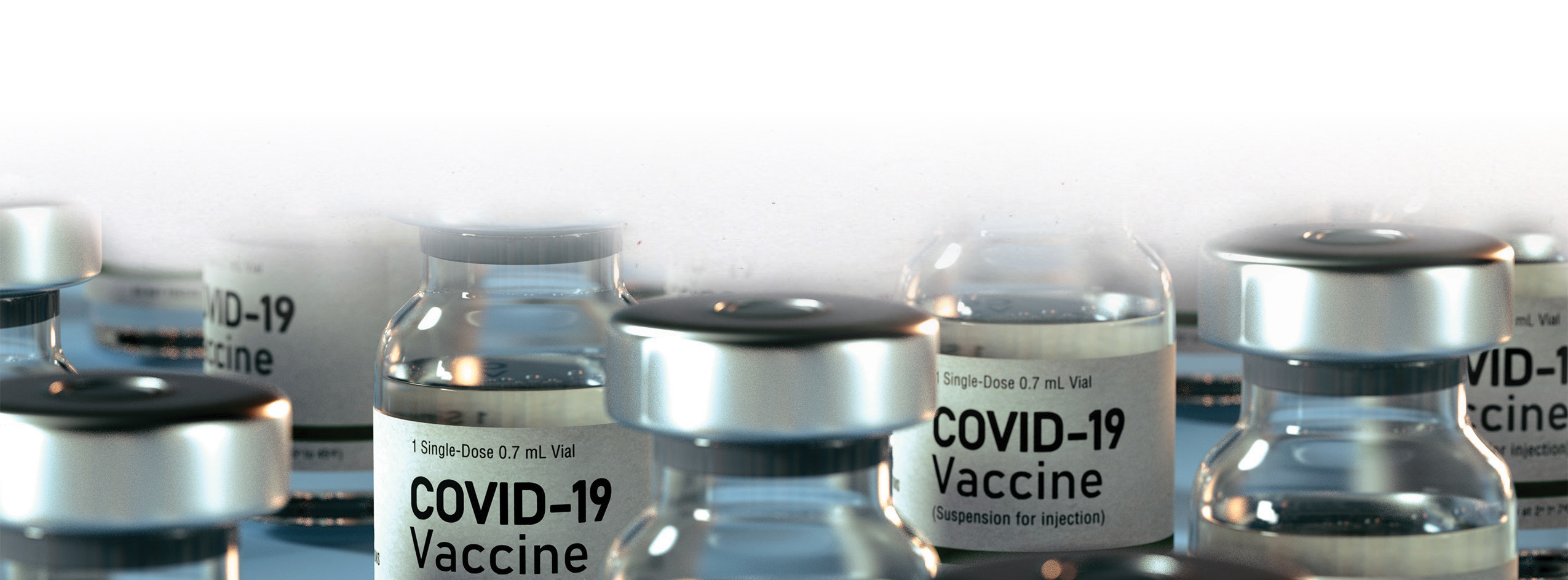G20 – English



COVID-19 poses an existential threat to global stability, health, and development. This is not an exaggeration, but a fact reflected in startling numbers: Nearly 5 million people dead and counting, more than 235 million infected, and less than 35% of the global population are fully vaccinated. The pandemic erased at least an estimated $4 trillion in economic output in 2020 alone, plunging billions more people into poverty. Amid a profound global crisis that calls for unity and leadership, the world is divided more than ever.
The upcoming G20 summit in Rome, Italy at the end of October 2021 is an opportunity for the leaders of the 20 largest economies to finally change the course of the pandemic and set the world on a path to recovery. They must unequivocally pledge to do everything in their power to Vaccinate Our World. There is no more time for weighing the political pros and cons of suspending vaccine patents, mandating technology transfers to expand vaccine production, and donating billions of dollars for a robust, sustained global response to the pandemic. This is a matter of survival.
As advocates, mothers, fathers, children, grandparents, loved ones, concerned citizens of the world—and as your constituents and taxpayers—we call on you to take the following actions in the 100 days leading up to the G20 summit in Rome.
and technology transfers to developing countries to increase vaccine production and Vaccinate Our World.
so that all countries can effectively monitor the emergence and spread of new SARS-CoV-2 variants.
as the only way to address pandemics – no country is safe until all countries are protected.
– 100% transparency is essential.
to establish it as the primary funding mechanism to combat the current and future pandemics.
which will serve as the worldwide health governance system that can rapidly respond to future outbreaks and pandemics.
Considering the ongoing crisis, our proposal calls for the entire global public health architecture to be redesigned, instead of merely re-creating another organization like the World Health Organization (WHO). This transformation must be guided by three fundamental principles: Transparency, Accountability, and Cooperation. It should be promulgated in the form of a new Global Public Health Convention for the needs of the 21st century, as outlined in the recent study in The Lancet Public Health journal.
The Global Public Health Convention should serve as a basis for a responsive and equitable global health architecture that is capable of rapidly delivering lifesaving results during outbreaks and international health emergencies. It must be infused with a robust mandate to overcome problems such as hoarding and the inequities in accessing vaccines and medicines, and the reluctance of some countries to share epidemiological data in a transparent, timely, and credible manner for the benefit and health security of all nations.
The lack of global solidarity in sharing the vaccines that can protect all of us is incomprehensible. As if altruistic concern for our neighbors is not a good enough reason, even self-interest seems incapable of convincing wealthy countries to stop hoarding the vaccines to prevent the transmission of the virus across the world before it inevitably returns to their own borders.
Let the few lucky countries with vaccines not delude themselves into a false sense of security—we share one interconnected world and one fate. Whether individual nations and their leaders choose to forgo self-interest and tribalism to save humanity is a choice they must make today. We call on the G20 to do the right thing!

